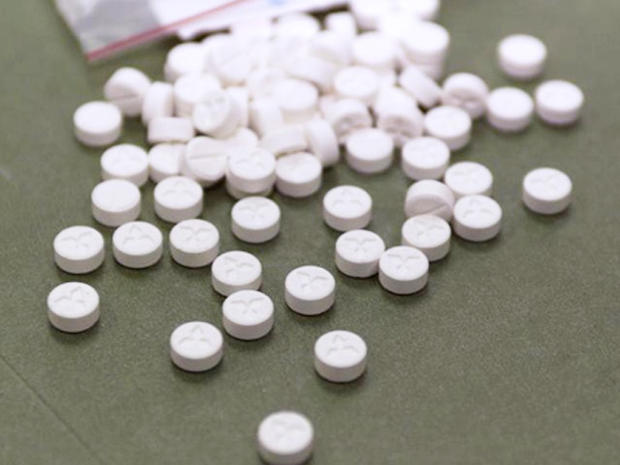Teens who use ecstasy, speed more likely to experience depression, study shows
(CBS News) Teens who get high on MDMA, methamphetamine and/or amphetamine could be setting themselves up for feeling depressed long after they take the drugs, according to a new Canadian study.
The study, published in Journal of Epidemiology and Community Health, showed that teens who used party drugs like ecstasy and speed -- the street names for the active ingredients -- were more likely to have a higher level of depression later on.
Researchers interviewed about 3,900 10th graders in Quebec and followed up with them when they were in the 11th grade. Those who admitted to using the drugs had a 60 to 70 percent risk of experiencing depression symptoms a year after they said they used the substances. Teens who used both the drugs had double the risk for signs of depression compared to those who didn't use the drugs.
"This doesn't ensure causality, but that's the closest we can get with this kind of study," study co-author Dr. Jean-Sebastien Fallu, associate professor of educational psychology at the University of Montreal, in Quebec told CNN.
According to a National Institue of Drug Abuse-funded (NIDA) study, fewer 10th graders saw any "great risk" in using MDMA. Between 2009 and 2010, MDMA use in the age group went up from 3.7 percent to 4.7 percent, although it is important to note that on average use has been down over the last 10 years.
When it comes to stimulants, 1.6 percent of 10th graders admitted to using methamphetamine in 2010 and 7.6 percent of those surveyed said they used amphetamines in the past years, NIDA reported. Use of Ritalin and Adderall, which are amphetamine salts-based medications, were at 2.7 and 5.3 percent respectively. Scientists who conducted the Quebec study found similar results: 12 percent of teens admitted to using speed, while only 8 percent admitted to using ecstasy.
The only way to see if there was an actual link between depression and the abuse of these drugs would be to test the actual drugs and some placebos on teens, which would never be allowed ethically. Researchers have hypothesized two reasons why there is possible link due to the changes on hormone levels, and also mentioned that other drugs could also have an effect on depression.
"That these drugs have a neurotoxic affect on serotonin [hormone] levels involved in mood control," Fallu told HealthDay. "Or that the mood of those who choose to use these drugs is affected by the social ties and influences that come with affiliating with other users, who may have their own issues and mood problems. And both those mechanisms would tend to be more problematic for children than adults."
The study could not determine if the depression was a long- or short-term effect. It also did not include dropouts, and only included young teens who were more than likely using the drugs infrequently than regularly. Still, some doctors caution that these results should serve as a warning for teens.
"This finding is exactly what I would predict," Dr. Ronald Cowan, an associate professor of psychiatry at the Vanderbilt University Medical Center School of Medicine, said to HealthDay. "Because these drugs definitely bring about a chronic alteration in serotonin levels in the brain. Yes, the human data has been somewhat equivocal, and more work needs to be done. But the animal data is very compelling. So I would think parents should be very concerned about this."

